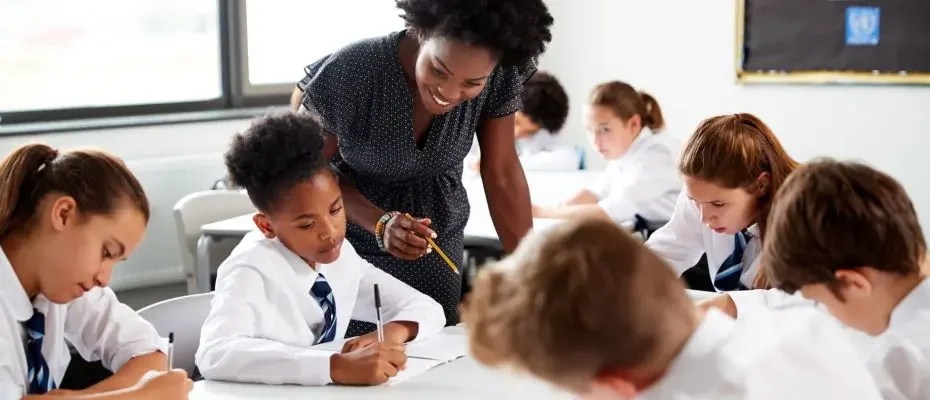After a couple of turbulent academic years, our schools will be open again with children and teachers back in classrooms across the country. However, many of these classrooms and school buildings still rely heavily on fossil fuels, are expensive to run and are contributing to damaging carbon dioxide emissions.
Teachers and school leaders dedicate their lives to creating a better future for their pupils. But it’s just as important for schools to consider their impact on global warming and the future of our planet – so how can we build a strategy to achieve this?
There are a whole host of ways to effectively decarbonise. For example, school managers can hugely reduce their environmental impact by selecting greener sources of energy and ensuring buildings are energy efficient. They can also generate their own electricity through PV panels on rooftops. But energy can also be conserved by changing the behaviours of the users of the building themselves. For example, they can:

Instructions and directives to staff and students may work, but it will have a limited effect in the long run. Training could help too, but for a real, sustained improvement in energy usage, behavioural change needs to be embedded. Barker supports the “Let’s Go Zero” campaign for schools which is a good source of information for this.
One way to achieve this is through embedding energy efficiency and decarbonisation into the school curriculum. There are a number of free resources available to support lesson planning and wider stakeholder engagement. The Young People’s Trust for the Environment is a good source of information for this.
Another way to embed change is to measure and report on the energy efficiency of your buildings. By making carbon reduction a key metric for the trust or school, it keeps the issue top of mind. Barker can introduce you to the EO Portal, which includes a useful energy dashboard for monitoring energy usage.
Interested to launch a decarbonisation strategy at your school? Just give Robert Gould a call on 01279 647111 or drop him an email at rgould@barker-associates.co.uk, to discuss how we can help you save energy and money.